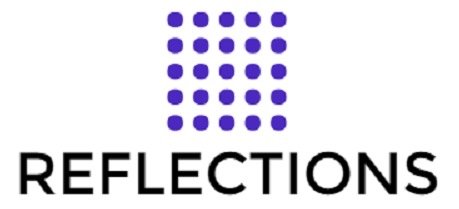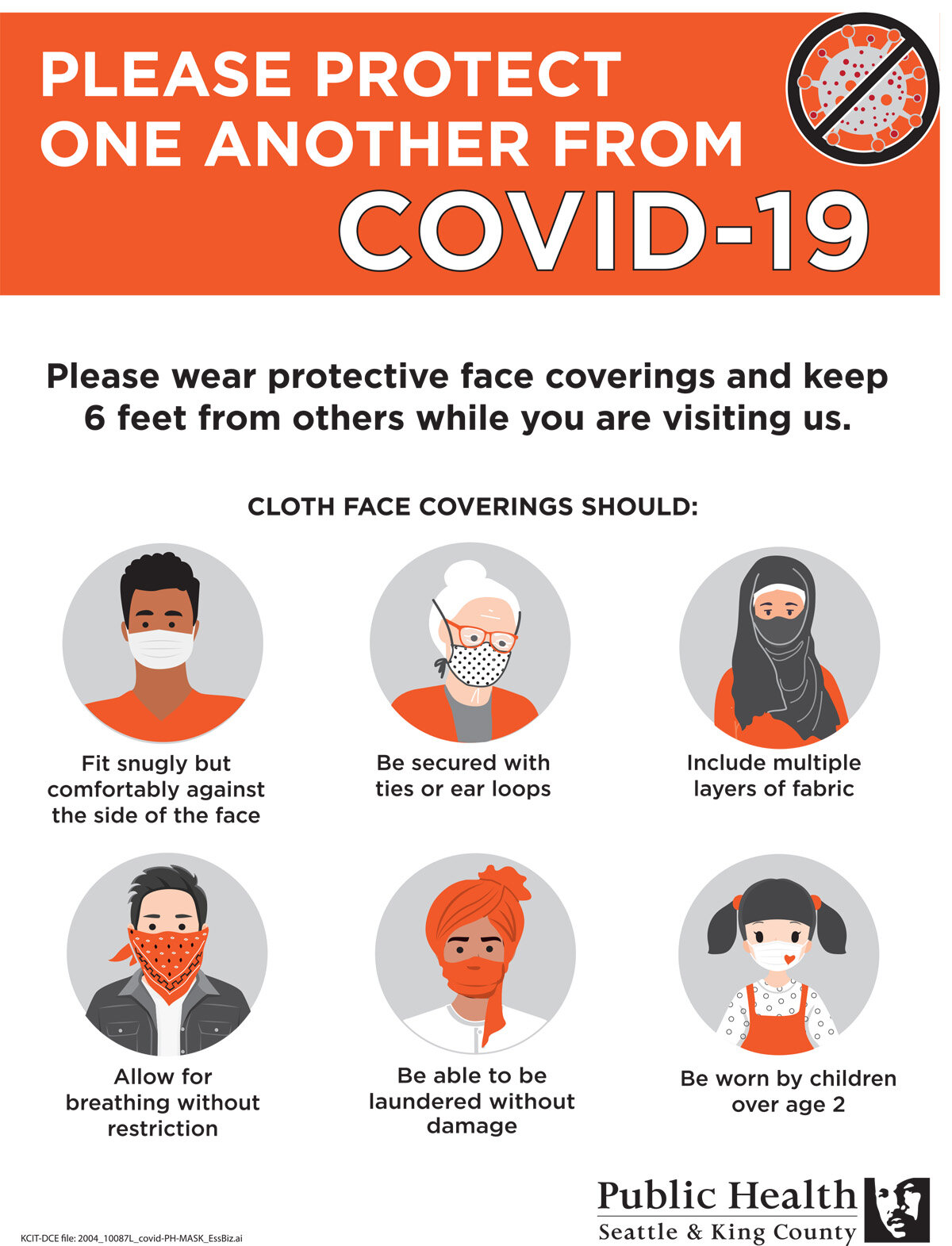COVID19 -- Planning for Disability and End of Life
COVID19 Poster from Seattle & King County Public Health website
COVID19 – Planning for Disability and End-of-Life
It was the best of times and the worst of times when my mom got her cancer diagnosis and had abdominal surgery in the fall of 2005. The bad part of such a diagnosis is probably easy to imagine and while I was living through the last months of her life I didn’t feel like I was creating good memories, but in retrospect there were many good things that happened over the eight months between her diagnosis and her death at age 89:
1. PREPARATION. The family was well-prepared in the sense that we had in place the normal end-of-life documents: advanced directive, healthcare power of attorney, financial power of attorney, will, and funeral plans. We knew that our planning had been worth the effort.
2. EXPERT HELP. A placement agency worked with us very quickly to find an adult family home that could provide the care needed following surgery in a competent, loving environment where our family members were welcome to come as often as we wanted.
3. NEW SKILLS. I learned care-giving skills I didn’t know I could tackle and enjoyed pleasant conversations with my mom during the hours we spent together. I had the satisfaction of knowing I’d done everything I could to help her.
4. RESOLVED CONFLICTS. When some family disagreements arose, we were able to obtain the services of a hospice chaplain the same day and she skillfully brought us all together. I got to hear my mom tell the chaplain how happy she was with where she was living and the care she received. Hearing that meant a lot to me at that stressful time.
5. MEANINGFUL MEMORIAL. When death occurred, we were easily able to implement the plans we had previously made concerning burial, her memorial service, and settling her estate. These events served as a tribute to a life well-lived and a loving reunion for friends and family.
The news we hear each day about COVID19 makes me think about the experiences I had with my mom, as well as my experience with the deaths of two other family members two years later. A pandemic presents unique challenges that most of us have not thought to prepare for. Fortunately, there are many good resources available to help us. Here are three websites I recommend:
1. The Seattle & King County Public Health website has practical information about how to protect yourself and what steps are required for businesses to reopen. It also has information about symptoms, testing and healthcare services.
2. The website of Compassion & Choices has many valuable planning resources. They offer a free 31-page end-of-life planning booklet that can be downloaded from their website. Reviewing that booklet first by yourself and then with family members will help all of you get prepared for questions that may come up if you become seriously ill. A new section in the Compassion & Choices website provides information specifically about COVID19 treatment. If you want to state specific preferences for COVID19 treatment, a special form is provided.
3. If you would like forms for a Healthcare Power of Attorney and a Healthcare Directive, also known as the Advance Directive, visit the website called Honoring Choices Pacific Northwest. Their documents are suitable for the State of Washington.
Here are some of the issues which can be addressed by these documents:
1. NAMES. Who you would like to make your healthcare decisions if you are not able to and who should be the alternate if your first choice is not available?
2. PRIORITIES. What aspect of care means the most to you: communication, pain reduction, bathing and grooming, visiting with friends and family or something else?
3. LOCATION. If the end of your life is near, do you prefer to be at home, even if some procedures can’t be done there?
4. END POINT. At what point would you want treatment to stop?
5. EQUIPMENT AND PROCEDURES. Do you have strong feelings for or against the use of respirators, ventilators, feeding tubes or CPR? You can state your preferences in your documents.
These are difficult issues to think about and discuss, but you will be doing your family a favor to talk with them before the actual need arises. There are many people who can help you decide on your preferences: a member of the clergy, a hospital chaplain, an attorney, your physician, or a friend or family member who has experience with end-of-life matters. Your attorney or physician may have end-of-life forms to recommend that are different than the ones found online. Use the ones you are most comfortable with, as long as they meet the requirements of Washington law.
Once you have completed and properly signed your Healthcare Power of Attorney and Advance Directive, don’t forget to provide copies to the persons named as your agent and back-up agent, your family members and your doctor. Keep extra copies available to take with you to medical appointments.
A medical crisis creates many unique challenges, but you and your family will be better able to meet whatever you are faced with if you have thought through important issues ahead of time and completed the documents needed to implement your preferences.
Helping someone navigate difficult transitions in life is a privilege. We should all prepare the best we can for that responsibility. Let’s try to ensure that medical emergencies and end-of-life experiences include at least a few good memories of families coming together, resolving problems, and doing their best to support one another.
There are several other blog posts on this website on related topics. Please take a look at:
A Valuable Gift for Your Family
Tips and Traps regarding Senior Living and Finances

